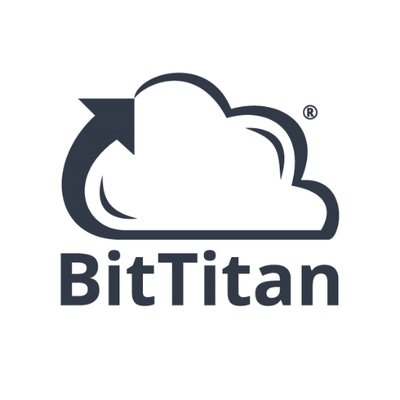In this article, I’ll share the best programming languages in 2024. Choosing the best programming language can be tricky. Plus, when you consider that the Stack Overflow developer survey alone lists more than 40 different programming languages, there’s a lot to choose from! So, if you’re curious about the best programming language to learn, I’m here to help! Perhaps you’re interested in data, and you’re thinking about learning Python. Or maybe you’re interested in learning JavaScript for front-end development? Whatever your goals, join me as I deep-dive into the best programming languages to learn in 2024, including use cases, pros and cons, and more.
The Best Programming Languages To Learn In 2024
-
JavaScript
Why should you learn this language in 2024? Learning JavaScript in 2024 is like adding a Swiss Army knife to your coding toolkit! Known for its flexibility and ubiquity, JavaScript continues to reign as the cornerstone of web development. It’s no wonder there are so many great JavaScript courses available. It’s also held the top spot as the most popular language on the annual Stack Overflow survey for more than a decade! And at a time when the internet shapes so much of our daily lives, JavaScript’s role has evolved far beyond adding interactivity to websites. It’s now a critical player in server-side development, mobile app creation, and even the burgeoning fields of machine learning and Internet of Things (IoT) applications. One compelling reason to dive into JavaScript is its vast ecosystem and community support. With JavaScript frameworks and libraries like React, Angular, and Vue.js, developers can rapidly prototype and deploy complex applications and JavaScript projects. Plus, the advent of Node.js has expanded JavaScript’s reach to server-side programming, enabling full-stack development with a single language. This simplification reduces the need to know multiple languages when building full-stack applications. JavaScript’s continual evolution ensures it remains at the forefront of modern web standards and practices. I’m always impressed by its commitment to annual updates through the ECMAScript specifications, as this guarantees new features and improvements that keep pace with the changing landscape of web technology.
What is this language used for?
- Web Development: At its core, JavaScript is used to create dynamic and interactive web pages, enhancing user experiences with real-time updates and interactivity.
- Front-End Frameworks and Libraries: Frameworks like React, Angular, and Vue.js can build sophisticated single-page applications (SPAs) with rich user interfaces and client-side functionality.
- Server-Side Development: With Node.js, JavaScript extends its capabilities to the server side to allow the development of scalable and high-performance web applications.
- Mobile App Development: Frameworks like React Native and Ionic allow developers to use JavaScript to create cross-platform mobile applications that run on iOS and Android.
- Game Development: JavaScript is also used in game development, particularly web-based and mobile games, leveraging libraries like Phaser and Three.js.
- Machine Learning and AI: Libraries like TensorFlow.js allow developers to implement machine learning models directly in the browser or on Node.js, bringing AI capabilities to web and server-side applications.
Key Details For New Developers
- Pros: Ubiquitous across web development; essential for client-side scripting. Rich ecosystem with frameworks and libraries for enhanced development speed.
- Cons: Dynamic typing can lead to runtime errors and bugs. Single-threaded nature, which can lead to performance issues in complex applications.
- Popularity: #1 on Stack Overflow, #3 on PYPL, #6 on TIOBE
-
Python
Why should you learn this language in 2024? Okay, big disclaimer: I’m very biased regarding Python! It’s by far, my favorite language, so much so that I created my own Python course to teach beginners. But don’t just take my word for it because Python continues to be one of the most popular programming languages for beginners and experienced developers alike. Much of this can be tied to its clear syntax and readability, meaning that Python makes programming accessible and enjoyable, especially for beginners. But its ease of use doesn’t detract from its power; Python is a heavyweight in various advanced fields, from data science to web development, making it an invaluable language to learn in 2024. One of Python’s best attributes is its vast ecosystem of Python libraries and frameworks, which allows you to tackle complex tasks and Python projects with relative ease. For instance, libraries like NumPy and pandas have revolutionized data analysis, while TensorFlow and PyTorch have become cornerstones in the field of machine learning and artificial intelligence. This extensive Python library support, combined with its inherent simplicity, allows for rapid prototyping and development, making it an ideal language for both academic research and production environments. In fact, the list of Python applications is impressively wide, and Python’s widespread adoption across various industries ensures that learning it in 2024 can open numerous doors in the job market. So whether you’re interested in high-demand sectors like web and software development to data analytics and beyond, Python is a great choice. I should also point out that I’m always impressed by Python’s active and welcoming community, as this provides an invaluable resource for learners, offering extensive documentation, tutorials, and forums to assist in overcoming any hurdles encountered along the learning journey. Plus, with so many great Python courses to choose from, it’s easy to go from absolute novice to capable coder in no time at all.
What is this language used for?
- Data Science, Analysis, and Visualization: With libraries like pandas, NumPy, and Matplotlib, Python excels in data manipulation, statistical analysis, and data visualization, making it a go-to choice for data scientists and analysts.
- Machine Learning and AI: Frameworks such as TensorFlow, PyTorch, and Scikit-learn enable Python users to develop and train sophisticated machine learning models, driving advancements in artificial intelligence.
- Web Development: Web frameworks, including Django and Flask, offer powerful tools for building secure, scalable, and maintainable web applications with ease.
- Automation and Scripting: Python’s simplicity makes it ideal for automating repetitive tasks and scripting, enhancing productivity and efficiency in various workflows.
- Scientific and Numeric Computing: The language is heavily utilized in scientific research for simulations, computational modeling, and complex calculations, supported by libraries like SciPy and NumPy.
- Software Development: Beyond web and data-focused domains, Python is also used for general-purpose software development, offering libraries and tools that cater to a wide range of applications, from GUI-based applications to command-line tools.
Key Details For New Developers
- Pros: Highly readable syntax, making it accessible for beginners and versatile for various applications. Extensive standard library and third-party modules for a broad range of tasks.
- Cons: Slower execution time compared to compiled languages. Global Interpreter Lock (GIL) can be a bottleneck in CPU-bound and multi-threaded code.
- Popularity: #3 on Stack Overflow, #1 on PYPL, #1 on TIOBE
-
HTML/CSS
Why should you learn this language in 2024? Despite their almost ancient web origins, HTML and CSS continue to be essential languages in 2024 for anyone who wants to embark on a journey into web development. These two languages, though distinct, are often mentioned in tandem due to their complementary roles in web development. HTML (HyperText Markup Language) lays the structural groundwork of web pages, defining elements like headings, paragraphs, and links. CSS (Cascading Style Sheets), on the other hand, is the stylistic counterpart to HTML and is responsible for the layout, colors, fonts, and overall visual presentation. Together, they form the bedrock upon which the vast expanse of the web is built! And in 2024, learning HTML and CSS is more relevant than ever as the demand for accessible, responsive, and visually appealing web content continues to surge. Plus, with the proliferation of mobile devices and their range of screen sizes, mastering HTML and CSS ensures you can create websites and HTML projects that are not only functional but adaptable across various platforms. The advent of HTML5 and CSS3 also brought with it a plethora of features, such as semantic elements, advanced selectors, and animations. These are ideal for crafting sophisticated and interactive user experiences without heavy reliance on JavaScript or other technologies. Although it’s fair to say that HTML, CSS, and JavaScript form the ‘holy trinity’ of web development, and it’s usually the case that you’ll start with HTML/CSS before introducing JS for more impressive interactivity. Just check out any good web development course, and you’ll see that they revolve around these three web technologies. Understanding HTML and CSS is also crucial for SEO (Search Engine Optimization) and web accessibility. Proper use of HTML elements and attributes enhances the semantic…






















